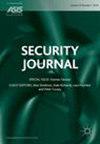什么能真正有效地防止针对组织的欺诈,决策者真的需要知道吗?
IF 1.2
0 LANGUAGE & LINGUISTICS
引用次数: 0
摘要
使用高质量的评估来解决社会问题的证据基础已经成为许多领域的规范,包括解决传统犯罪。然而,正如我们在组织面临欺诈的例子中所展示的那样,高质量的评估并不总是可能的,甚至不是有效解决问题所必需的。本文回顾了400多项探讨预防欺诈的研究,发现使用马里兰量表达到最高质量评价标准的研究很少。这在很大程度上是因为考虑到衡量欺诈的挑战,实施马里兰量表存在障碍,而不是因为研究本身的质量低。在缺乏高质量评估的情况下,本文使用了马里兰量表的一种新颖替代方法来确定组织可以用来防止欺诈的一系列有效工具。最后,本文对一个更广泛的问题提供了实践和理论反思,即如何以及在多大程度上对高质量证据进行科学评估对于有效打击欺诈是必要的。本文章由计算机程序翻译,如有差异,请以英文原文为准。

What really works in preventing fraud against organisations and do decision-makers really need to know?
Abstract An evidence base of what works using high-quality evaluations in tackling societal problems has become the norm in many spheres, including tackling traditional crime. Yet, as we show in the example of fraud faced by organisations, high-quality evaluations are not always possible, or even necessary for tackling problems effectively. Drawing on a review of over 400 research studies exploring the prevention of fraud, this paper finds a paucity of studies meeting the highest quality of standards of evaluation using the Maryland Scale. This is largely because of the barriers to implementing the Maryland Scale, given the challenges of measuring fraud, rather than because of a low quality of research per se. In the absence of high-quality evaluations, this paper uses a novel alternative to the Maryland scale to identify a range of effective tools that organisations can use to prevent fraud. Finally, the paper provides practical and theoretical reflections upon a broader problem of how and to what extent scientific evaluations of high-quality evidence are necessary in combating fraud effectively.
求助全文
通过发布文献求助,成功后即可免费获取论文全文。
去求助
来源期刊
CiteScore
3.50
自引率
0.00%
发文量
35
期刊介绍:
The?Security Journal?is a dynamic publication that keeps you informed about the latest developments and techniques in security management. Written in an accessible style it is the world's premier peer-reviewed journal for today's security researcher and professional. The journal is affiliated to ASIS International and has an advisory board which includes representatives from major associations expert practitioners and leading academics.The?Security Journal?publishes papers at the cutting edge in developing ideas and improving practice focusing on the latest research findings on all aspects of security. Regular features include personal opinions and informed comment on key issues in security as well as incisive reviews of books videos and official reports.What are the benefits of subscribing?Learn from evaluations of the latest security measures policies and initiatives; keep up-to-date with new techniques for managing security as well as the latest findings and recommendations of independent research; understand new perspectives and how they inform the theory and practice of security management.What makes the journal distinct?Articles are jargon free and independently refereed; papers are at the cutting edge in developing ideas and improving practice; we have appointed an Advisory Board which includes representatives from leading associations skilled practitioners and the world's leading academics.How does the journal inform?The?Security Journal?publishes innovative papers highlighting the latest research findings on all aspects of security; incisive reviews of books videos and official reports; personal opinions and informed comment on key issues.Topics covered include:fraudevaluations of security measuresshop theftburglaryorganised crimecomputer and information securityrepeat victimisationviolence within the work placeprivate policinginsuranceregulation of the security industryCCTVtaggingaccess controlaviation securityhealth and safetyarmed robberydesigning out crimesecurity staffoffenders' viewsPlease note that the journal does not accept technical or mathematic submissions or research based on formulas or prototypes.

 求助内容:
求助内容: 应助结果提醒方式:
应助结果提醒方式:


